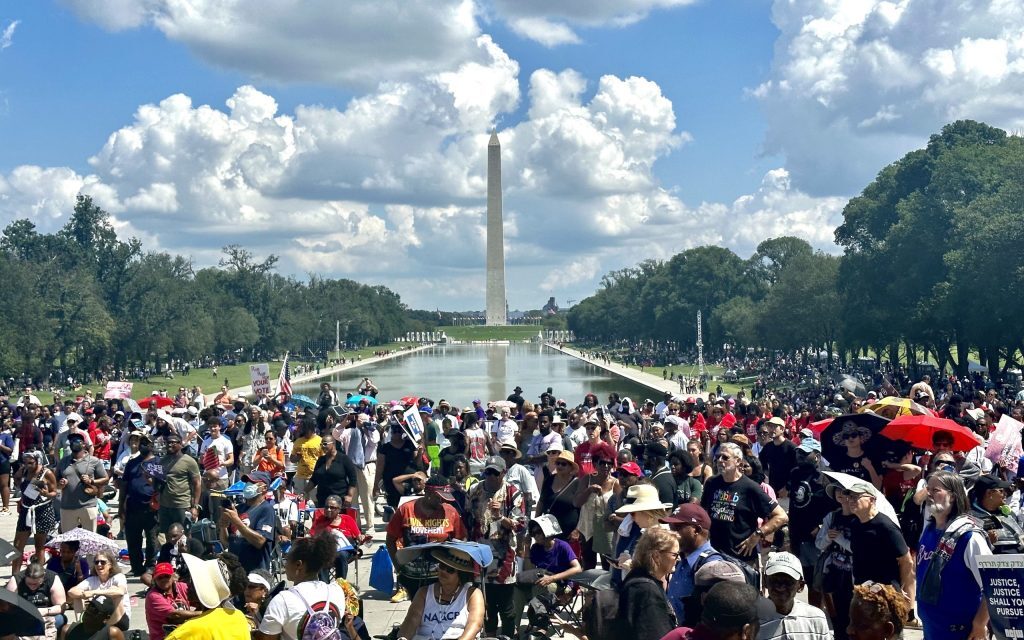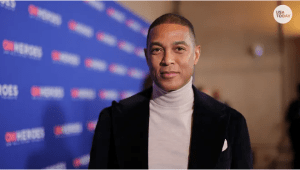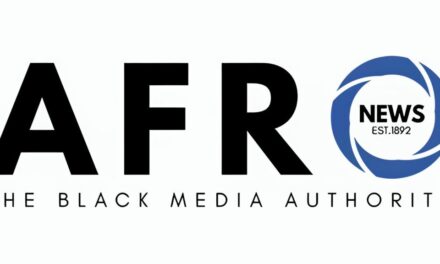Thousands of people gathered at the Lincoln Memorial to continue the March on Washington for Jobs and Freedom, led 60 years ago by civil rights leaders seeking to make change on the human and civil rights front.
The steps of the Lincoln Memorial overflowed with a myriad of citizens looking to “let freedom ring” in the ways that Dr. Martin Luther King Jr. spoke of in his 1963 “I Have a Dream” speech.

Many speakers noted that years after King’s iconic words were spoken, things have changed— but a lot has remained the same.
“Today was a day to show our strength, thousands of you came 60 years later to say that we are a continuation of a movement,” said President and Founder of the National Action Network, Rev.Dr. Al Sharpton. “I want to announce today that we’re going to fight back! They will not be able to turn back the clock.We’re going to stand up for who we are and where we are and what we are. Our fathers fought for this and we’re going to maintain it.”
Former Maryland State Senator Larry Young spoke with the AFRO about being at the original March on Washington and at the 60th anniversary.
“I was ten years old,” said Young. “I was a youngster and my mother didn’t want me to come. I was lucky that Henry Welcome, Sen. Verda Freeman Welcome’s husband, convinced my mother to let me come.”
“As a result of that, I was on that bus. We came in and I was way in the back. I could still hear the speeches, but could barely see the faces. Six decades later, I’m here— in front. Not to commemorate, but to continue with the dream and the vision,” said Young.
Young told the AFRO he is concerned about the current state of Black America and the country as a whole.
“We’re sliding backwards but we must find a way to get the message out and have a voter turnout second to none,” Young said. “It scares me that they are saying 13 to 14 percent of Black men are going to vote for trump. To me that is dangerous and we’ve got to deal with that between now and the general election.”
Though the original march had women behind the scenes, organizing and planning the demonstration, the only woman able to speak to the crowd on that August day was Daisy Bates, Arkansas NAACP director and Little Rock Central High School desegregation leader.
Danette Anthony Reed, international president and CEO of Alpha Kappa Alpha Sorority, spoke with the AFRO shortly after stirring the crowd with her words.
Reed weighed in on the significance of women in the fight to make change.
“I think the major importance of women’s roles is to make sure that we pull together. Number one, making sure that people understand the history,” Reed told the AFRO. “And second, to understand: what is our role? What are we gonna have to do to make a difference? And that’s advocate for justice, soaring to the polls and making sure that we educate.”

“We have to keep marching, we have to continue,” she said. “Yeah, we commemorate- but we gotta make a difference.”
The faith community did not disappoint when it came to whipping the crowd into righteous anger with their fervor and passion for equal rights.
In 2023, women spoke powerful words throughout the day, representing a host of organizations.
“This is more than just a reflection of what was, but this is an acknowledgement of the work that still needs to be done,” exclaimed Bishop Vashti Murphy McKenzie, interim president of the National Council of Churches of Christ in the USA from the steps of the Lincoln Memorial. “This is the time— this is the hour— to go grab your courage and push past fear in difficult times. This is the time, this is the hour to keep believing that justice is still possible–even when democracy is on life support!”
Rev. Warren Anthony, advisor for the Prince William County, Virginia NAACP Youth Council, spoke with the AFRO about the importance of handing off the struggle for human and civil rights to the next generation.
“I think it’s critical,” said Warren. “You have to start them now at this age because our civil rights leaders in the past started in their teens and early 20s. They became great leaders for the change that occurred. That’s what we’re doing. We’re developing our young social activists and leaders.”
“Our ‘three E’s’ are education, entrepreneurship and enjoyment,” Warren explained.
“I feel empowered to be out here with like minded individuals, to give back and show homage to the ones who came before us,” said Morgan Scott, who served as a volunteer on behalf of Howard University. “We have to continue the legacy.”
The post Economic inequity, gun violence and White supremacy key topics at 2023 March on Washington appeared first on AFRO American Newspapers .










